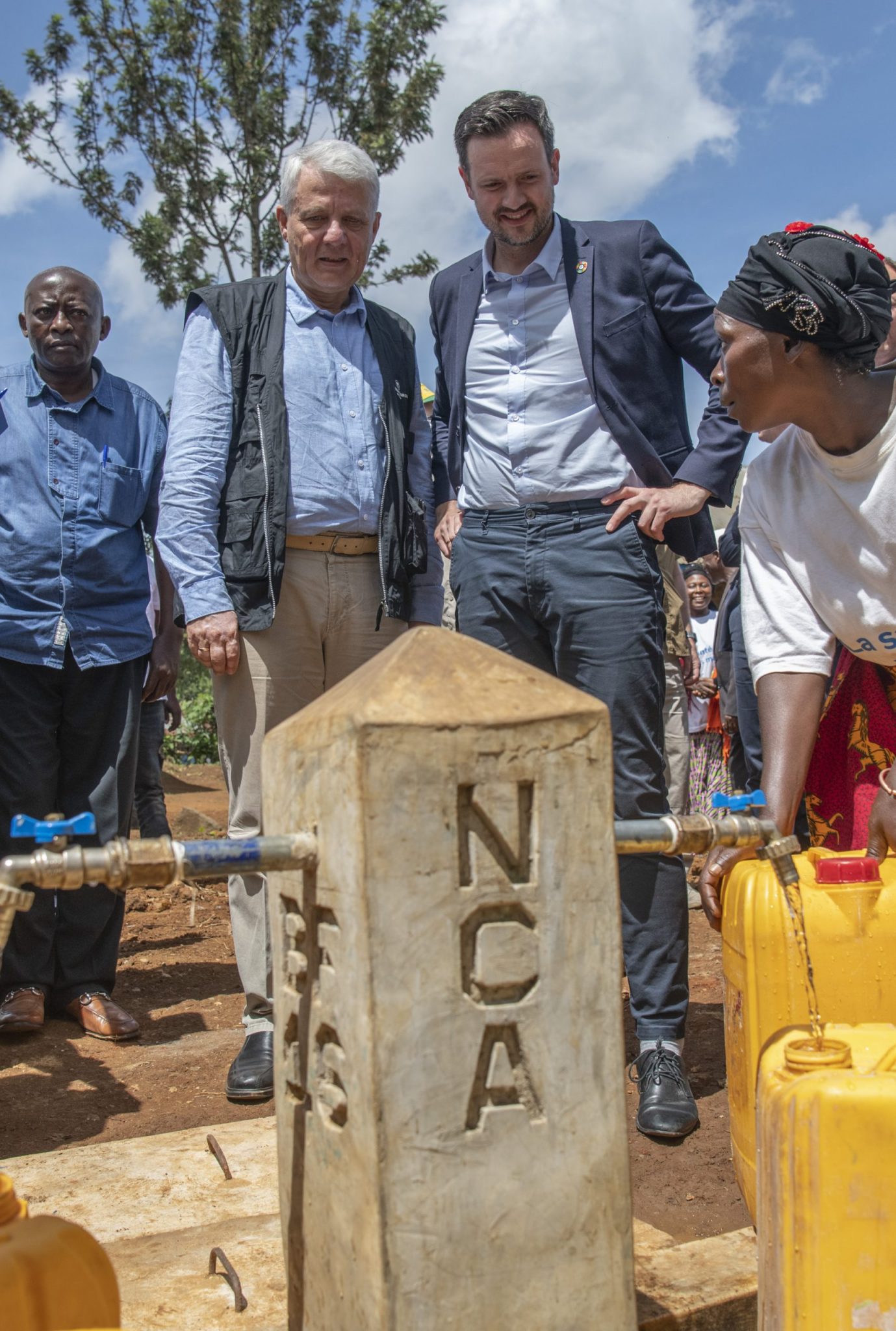CHS story of change: Norwegian Church Aid’s commitment to resilience (Commitment 3)
In the run up to the launch of the Humanitarian Accountability Report 2020, we have spoken to different organisations who have achieved certification against the Core Humanitarian Standard (CHS), to learn more about how this process is driving changes in policy and programmes. And ultimately, how it is helping aid work better for the people affected by crisis.
Here, CHS Alliance member Norwegian Church Aid shares insights into what they are doing to meet Commitment 3 of the CHS which states that communities and people affected by crisis are not negatively affected and are more prepared, resilient and less at-risk as a result of humanitarian action.

Norwegian Minister of Development, Mr. Dag-Inge Ulstein and NCA Secretary General, Dagfinn Høybråten, checking out a water pump in DRC, made in partnership with NCA. / © NCA
Norwegian Church Aid (NCA) was first certified towards the Humanitarian Accountability Partnership (HAP) in 2011 and was certified towards the Core Humanitarian Standard (CHS) in 2017. As a certified organisation, NCA is subject to annual audits, forcing the organisation to keep up the focus on accountability in all our work. Some of the changes brought about as a result of CHS certification are:
In order to succeed in implementing the CHS it is important that the standard is integrated into all our work as far as possible. To begin with, we struggled to apply the standards as integrated standards in our work. As a result, CHS became separated from the normal work streams and project cycles, making it difficult for our global staff members, including staff at head office, to understand the content, the relevance and the application of the standards.
One of the measures taken to overcome this challenge was to include annual internal reviews of one of the commitments as a specific output to the multi-year agreement between NCA and the Norwegian Ministry of Foreign Affairs (NMFA). This way, we forced ourselves to focus on the commitments and experienced the relevance of each commitment in project implementation.
Another measure taken was to include the commitments into the already established planning and reporting cycle, as well as integrating the CHS as a sustainability standard in the newly developed Programme Framework 2020-2030, making them standards that our work needs to adhere to in order for any intervention, project, activity and process to be sustainable, i.e. lead to lasting, positive change
In addition, the three biggest changes made in order to adhere to Commitment 3, are the revision of our risk assessment templates, the revision of monitoring templates and the implementation of the General Data Protection Regulation (GDPR).
Firstly, with a more comprehensive risk assessment, now including community-level research and linking to other actors in the field to identify existing assessments, potential risks to the community are identified at an early stage, enabling us to adjust and mitigate our response.
Secondly, the monitoring templates were revised to include negative effects as a compulsory element in all monitoring visits, enabling country offices to identify negative effects at an early stage, making it possible to adjust our response.
Thirdly, despite [GDPR] being a European regulation, NCA decided to strive to implement the same standard in all our work, globally. GDPR routines, information materials and e-learnings are developed and distributed to all NCA global staff.
The Humanitarian Accountability Report (HAR) 2020 will highlight eight more stories of CHS change, as well as providing an evidence-based overview of how accountable the aid sector is today. To attend the virtual HAR 2020 launch event and be one of the first to access the report’s results, sign up to the free virtual Global CHS Exchange, 6-8 October 2020.
